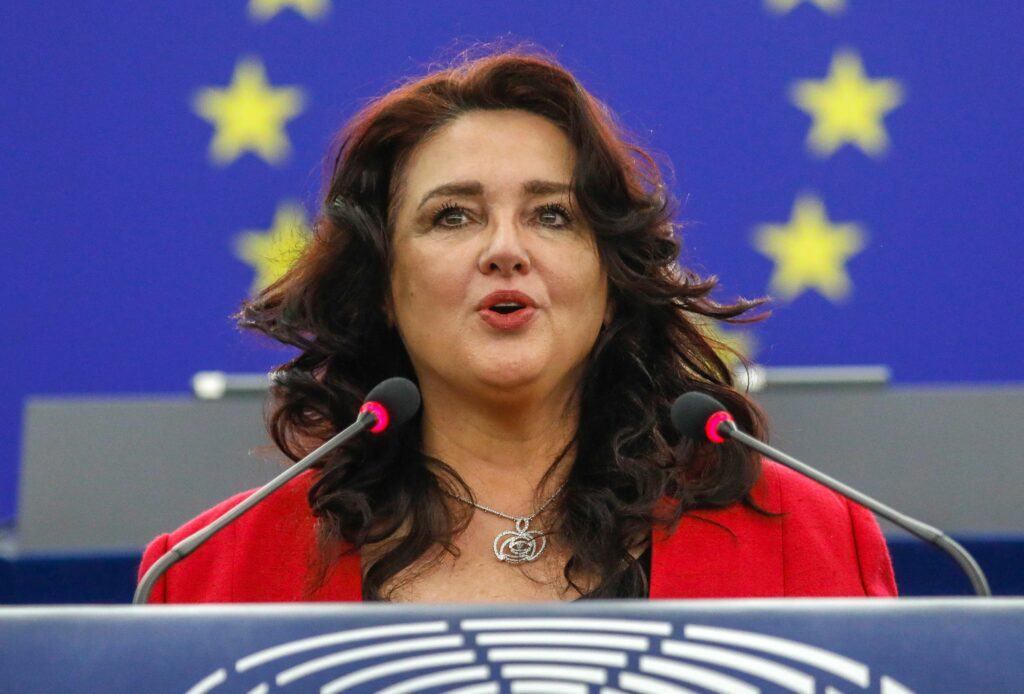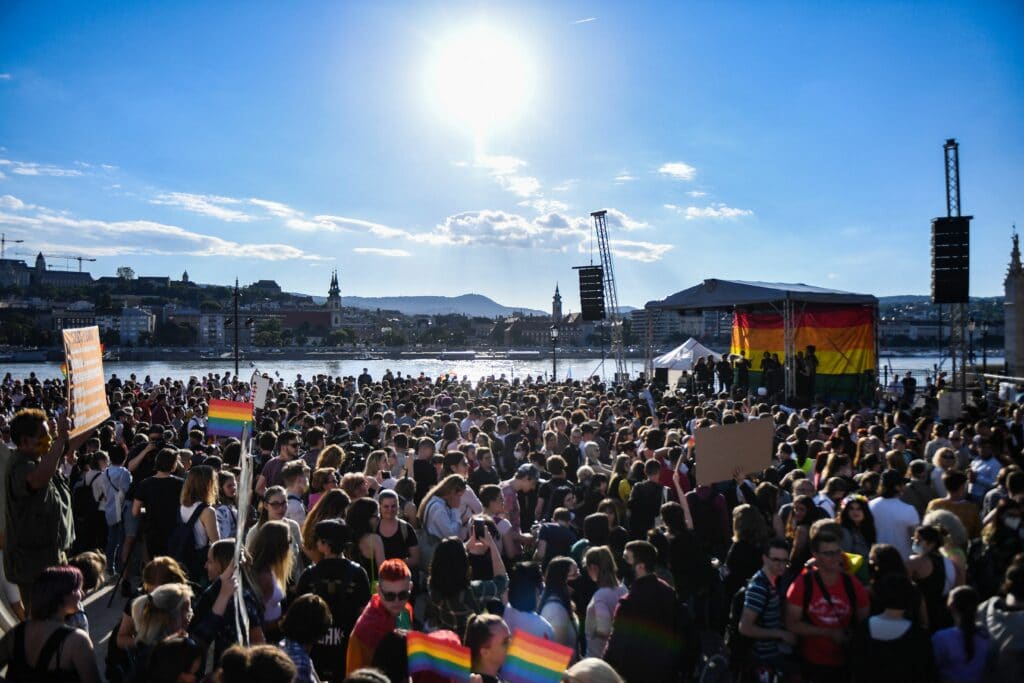Hungary to face EU funding sanctions after passing law banning the mere ‘promotion’ of LGBT+ rights

The prime minister of Hungary Viktor Orbán has launched salvos after salvos against the LGBT+ community. (Omar Marques/Getty Images)
Hungary may face funding restrictions from the European Union over legislation that cracks down on the mere “promotion” of LGBT+ people.
The law chiefly increases sentences for sex crimes against children – but tucked within it, a last-minute change that led to nationwide protests by banning the discussion of LGBT+ rights in schools and the press.
Now, Brussels is set to try to counter this anti-LGBT+ wave by potentially withholding crucial finding for projects from Hungary, a top equalities official told Openly.
“The message is that if you don’t uphold the values of democracy or equality of the European Union, you are not entitled to take money for your project,” the bloc’s commissioner for equality Helena Dalli told the agency.
She said the European Commission, the executive arm of the European Union, will “definitely” impose sanctions if the ruling Fidesz party’s legislation officially becomes law.

European Commissioner for Equality Helena Dalli. (JULIEN WARNAND / EPA -POOL / AFP) (Photo by JULIEN WARNAND/EPA -POOL/AFP via Getty Images)
It was passed by Hungary’s parliament, the National Assembly, on Tuesday (18 June). Nationalist Fidesz lawmakers rammed the amendment the week prior, drawing support from the right-wing Jobbik party.
Just a single independent lawmaker voted against the amendment which makes it illegal to depict or discuss different sexual orientations and gender identities in school or advertising and press viewed by minors.
Dalli said that the European Commission will look to the financial actions it took against Poland last year to reel in the country’s own tsunami of anti-LGBT+ activity.
The commission withheld funding for several towns in Poland after nearly 100 local governments – about a third of the territory – declared themselves “LGBT-free zones”.
As Dalli stressed, a Polish region reversed its policy because of the EU. “So we think that if we extrapolate that to what is happening in Hungary there might be also the same effect,” she said.
As anti-LGBT+ hate deepens in prime minister Viktor Orbán’s Hungary, the EU’s redress signals the extent of the international outcry the country has drawn for its treatment of queer residents.
The country once sought to legally erase trans people and successfully outlawed same-sex adoption and banned same-sex unions.
In Hungary’s ban on “popularising” LGBT+ rights, Orbán’s government-aligned lawmakers have laid bare the extent of their hatred towards LGBT+ folk, reducing them to wedges and moving political targets.

Participants gather near the parliament building in Budapest on June 14, 2021, during a demonstration against the Hungarian government’s draft bill seeking to ban the ‘promotion’ of LGBT+ rights. (GERGELY BESENYEI/AFP via Getty Images)
The ban would work by labelling certain content that is “not recommended for those under 18 years of age”.
Such content, which includes LGBT+ themes, could not be discussed by teachers in schools. The government would draw up an approved list of what can be taught in sex education classes.
It also means that LGBT+ lives could only be shown in the media, which includes advertisements, between the hours of 10pm and 5am.
The day before the heavily lopsided vote, thousands of Hungarians packed the streets outside parliament in Budapest urging politicians to reject the amendment.
Some queer Hungarians with the means to do so have even fled the country altogether to neighbouring European countries, dreaming of a “better future”.

